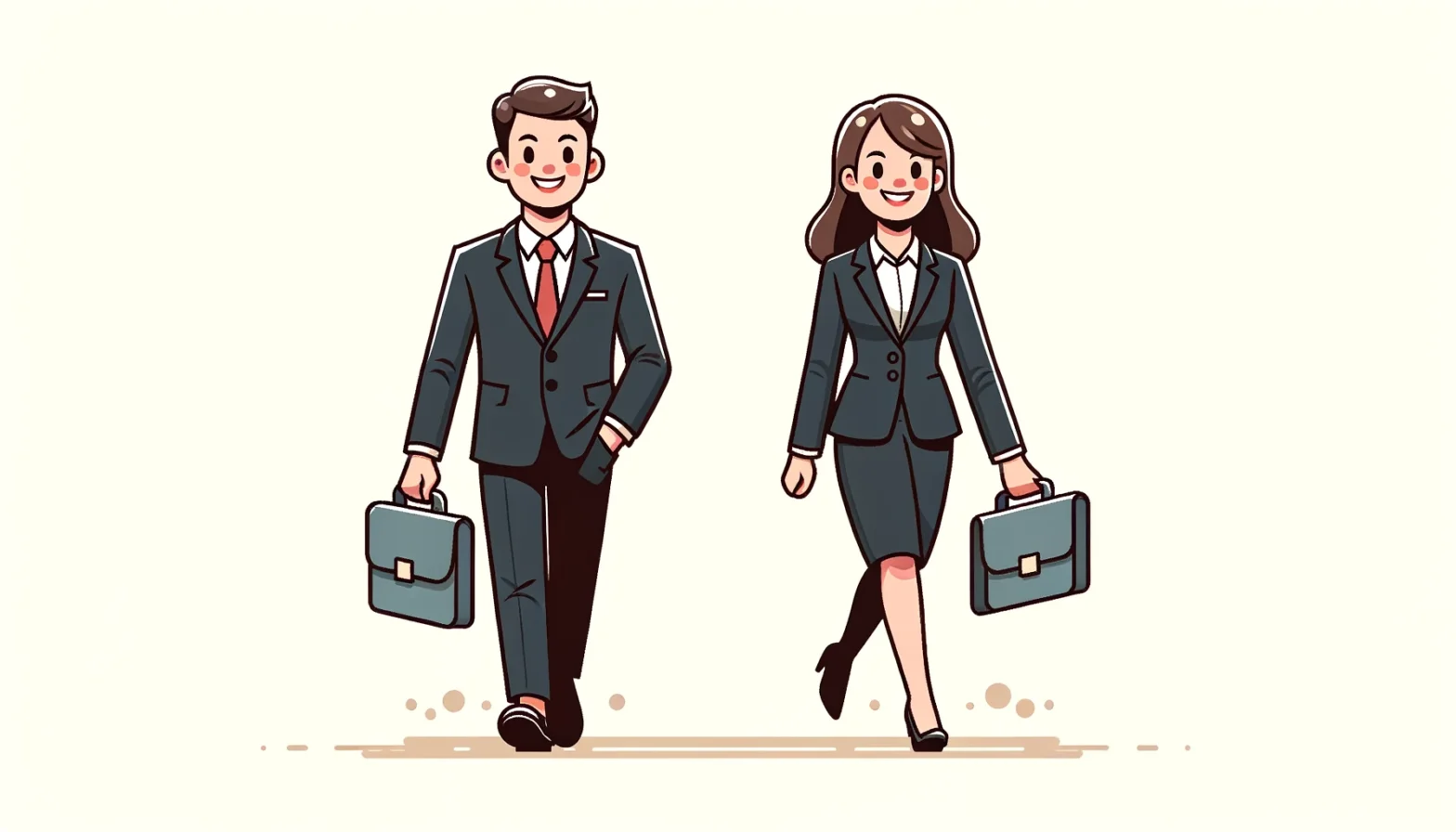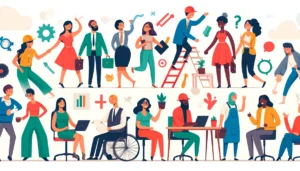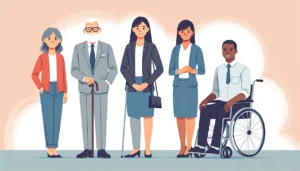New survey reveals 45% of UK women feel they are underpaid
- 4 Min Read
According to new research from CVwizard, negative bias is most prevalent among men between the ages of 45-60 but women still feel remuneration is not equal
- Author: HRD Connect
- Date published: Feb 12, 2024
- Categories

Nearly half of the women in the United Kingdom believe their salary does not fairly compensate them for their work, according to a recent survey that has reignited the debate about gender-based pay inequity.
The results highlight the widespread feeling among British women that their paychecks consistently fail to measure up to the value of their contributions in the workplace.
In an effort to understand the current job market better, CVwizard surveyed 1000 people aged 18-60. The view held a by significant proportion of female respondents is that they suffer from chronic underpayment points to more than just the limited, frustrating experiences of some employees – it indicates a systemic form of institutionalized sexism built into the foundation of workplaces across the country.
An uncomfortable truth lingers within British work culture – working women often find themselves underpaid, feeling their skills and contributions entitle them to greater compensation from their employers. The frustration reaches near the halfway point for women workers in the UK; that they endure unfair, disproportionately low salaries in not recognizing their true worth.
“These findings are not just statistics; they are narratives that reflect individuals in their professional careers. As we analyze and act upon these insights, we are poised to contribute meaningfully to the ongoing dialogue about the future of work and the collective responsibility we share in shaping it,”CVwizard said in a statement
The table below shows some of the key findings from the survey split by gender:
| Question | Overall | Male | Female |
| Does your job typically require a degree or other professional qualification? | 74.78% | 78.67% | 70.87% |
| Is your degree related to your job? | 68.45% | 72.02% | 64.85% |
| Do you believe a degree is needed to have a well paying job? | 52.48% | 55.77% | 49.32% |
| Have you received job offers via LinkedIn within the last year? | 51.12% | 54.21% | 47.96% |
| Have you seen an increase in skills based tests when applying for jobs? | 60.95% | 63.99% | 58.06% |
| Are you actively looking for a new job while in full-time employment? | 46.54% | 47.36% | 45.83% |
| Do you feel like you are fairly paid in your current role? | 61.05% | 67.12% | 55.15% |
| Would you prefer for job applications to be anonymous to reduce bias? | 66.89% | 69.86% | 64.08% |
| Have you ever experienced negative bias when applying for a job? | 50.73% | 51.47% | 50.10% |
| If you have experienced negative bias, what was it related to? | Age – 21.14% Race – 15.93% Gender – 14.10% Neighborhood – 3.37% Other – 4.80% | Age – 38.02% Race – 28.52% Gender – 15.59% Neighborhood – 4.56% Other – 6.08% | Age – 4.26% Race – 27.52% Gender – 31.01% Neighborhood – 5.04% Other – 7.75% |
Perceptions on Salary and Job Satisfaction:
When it comes to how satisfied people are with their salaries, the survey showed that there are differences based on age and gender. Overall, 45% of women surveyed felt that they were not fairly paid.
By comparison 67% of males surveyed were satisfied with their current salary. The gender pay gap has long been a topic of conversation, with the survey results confirming that women in the workplace still feel undervalued, when it comes to their remuneration package.
Bias and Discrimination
When it comes to bias in job applications, most people across all demographics want anonymous applications to reduce negative bias.
Many of the respondents admitted to experiencing negative bias, especially based on age, race, and gender. The least bias was reported by young males (18-29), at 39.67%, while older males (45-60) faced the most bias at 68.57%.
For the older group, age (54.16%) was the main reason for bias, showing that companies might prefer a younger workforce.
Qualifications and Job Requirements
When it comes to job qualifications, the survey found that most people in different groups believe their jobs require a degree or some professional qualification. However, among young females (18-29), only 70.12% felt a qualification was needed, compared to older males (45-60) who had the highest percentage at an impressive 94.29%.
This suggests that older males in their careers feel a stronger need for a degree compared to young females. The difference could be due to varied career choices influenced by age and gender.
In summary, the survey reveals significant differences in how people of different ages and genders see the job market. Younger women (18-29) often feel they face bias and are underpaid.
On the other hand, the older generation (45-60), both men and women, believe qualifications are crucial for well-paying jobs, unlike the younger generation who think a degree isn’t always necessary. It’s interesting that, despite feeling age bias, older men aged 45-60 are the main group currently looking for new jobs while still employed.







